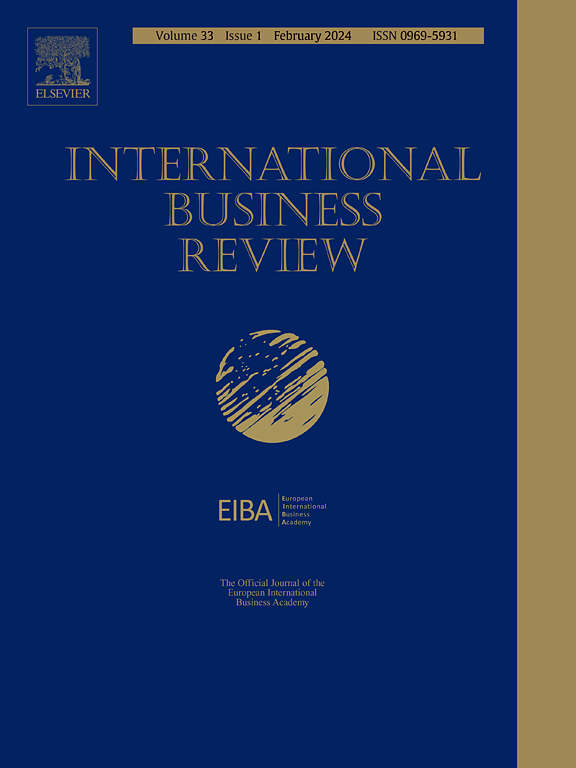母国与东道国制度一致性对跨国并购所有权水平的影响
IF 6.1
1区 管理学
Q1 BUSINESS
引用次数: 0
摘要
母国与东道国之间的制度一致性在跨国并购中起着重要作用。借鉴先前从制度经济学角度对多样性链的研究,我们探讨了母国和东道国之间正式和非正式制度对跨境并购所有权水平的一致性影响。利用2008-2020年“一带一路”沿线国家19352笔交易的样本,我们发现了正式制度和非正式制度的一致性和不一致性效应的实证支持。我们的研究通过引入正式制度一致性、正式制度不一致性、非正式制度一致性和非正式制度不一致性的类型学,为制度经济学文献做出了贡献。它还通过强调母国和东道国之间的正式和非正式制度一致性在决定跨境并购的所有权百分比方面发挥的关键作用,为国际商业文献做出了贡献。本文章由计算机程序翻译,如有差异,请以英文原文为准。
Effects of institutional (in)congruence between home and host countries on the ownership level of cross-border M&As
Institutional (in)congruence between home and host countries plays an important role in cross-border mergers and acquisitions (M&As). Drawing upon prior research on the diversity strand from an institutional economics perspective, we explore the (in)congruence effects of both formal and informal institutions between home and host countries on the ownership level of cross-border M&As. Using a sample of 19352 deals in Belt and Road Initiative (BRI) countries in 2008–2020, we find empirical support for congruence and incongruence effects for both formal and informal institutions. Our research contributes to the institutional economics literature by introducing a typology of formal institutional congruence, formal institutional incongruence, informal institutional congruence, and informal institutional incongruence. It also contributes to the international business literature by highlighting the critical roles that both formal and informal institutional congruence between home and host countries play in determining the ownership percentage of cross-border M&As.
求助全文
通过发布文献求助,成功后即可免费获取论文全文。
去求助
来源期刊

International Business Review
BUSINESS-
CiteScore
14.10
自引率
6.90%
发文量
95
审稿时长
62 days
期刊介绍:
The International Business Review (IBR) stands as a premier international journal within the realm of international business and proudly serves as the official publication of the European International Business Academy (EIBA). This esteemed journal publishes original and insightful papers addressing the theory and practice of international business, encompassing a broad spectrum of topics such as firms' internationalization strategies, cross-border management of operations, and comparative studies of business environments across different countries. In essence, IBR is dedicated to disseminating research that informs the international operations of firms, whether they are SMEs or large MNEs, and guides the actions of policymakers in both home and host countries. The journal warmly welcomes conceptual papers, empirical studies, and review articles, fostering contributions from various disciplines including strategy, finance, management, marketing, economics, HRM, and organizational studies. IBR embraces methodological diversity, with equal openness to papers utilizing quantitative, qualitative, or mixed-method approaches.
 求助内容:
求助内容: 应助结果提醒方式:
应助结果提醒方式:


